This article shows you how to install the emoji character set on your Android device. Remember that the number and type of emojis available for use depends solely on the version of Android installed on the device. Read on to find out how.
Steps
Part 1 of 4: Check the Android Version
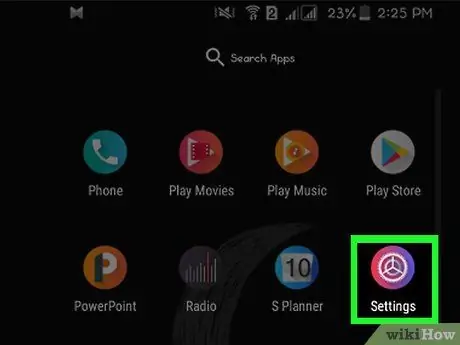
Step 1. Launch the Settings app on your Android device
To do this, tap the "Settings" icon located within the "Applications" screen of your device.
Emoji support is exclusively linked to the version of Android installed on the device in use. This is because the character set that includes emojis is handled directly at the operating system level. Each new version of Android adds support for a new set of emoji characters
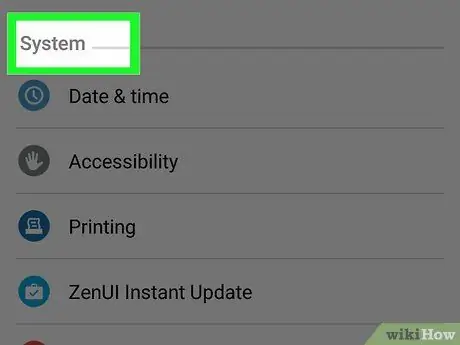
Step 2. Scroll to the bottom of the "Settings" menu
On some devices it may be necessary to select "System" first.
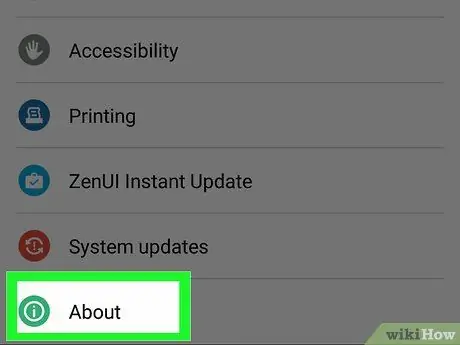
Step 3. Tap the Device Info option
The wording of this item may also differ according to the type of device in use: "Info on phone" or "Info on tablet".
Step 4. Select the Software Info option (only if needed)
Some Android device models require you to access the submenu indicated to be able to trace the version of the operating system installed.
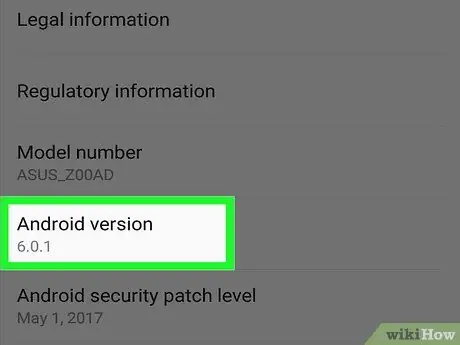
Step 5. Find the version number of the operating system
Look for "Android Version". The numbers in this field accurately indicate the Android version currently installed on your device:
- Android 4.4 and above: Devices running version 4.4 or later can directly take advantage of the Google keyboard to type emojis. Most likely, even the default keyboard of Samsung Galaxy devices already integrates the ability to use emojis. The fonts available, as well as the style and any animations, depend exclusively on the version of Android in use.
- Android 4.3: To type emojis in black and white, you can enable the use of the iWnn IME keyboard. Alternatively, you can install a third-party keyboard, which supports color emojis.
- Android 4.1 and 4.2: it is possible to view some types of emoji, but there is no default keyboard able to allow them to be inserted into the text. To work around this problem, you can still install a third-party keyboard that supports emoji.
- Android 2.3 and earlier: Devices running these versions of Android do not support the display and use of emojis.
Part 2 of 4: Using the Google Keyboard (Android 4.4 and Later)
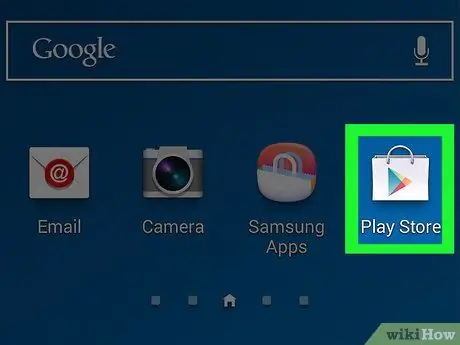
Step 1. Go to the Google Play Store
The Google keyboard (also called Gboard) includes full emoji support, so the device it is installed on can correctly display all emoji characters. All color emojis are available for devices using Android version 4.4 (KitKat) or later.

Step 2. Tap the Google Play search bar located on the main Google Play Store screen
It is located at the top of the screen.
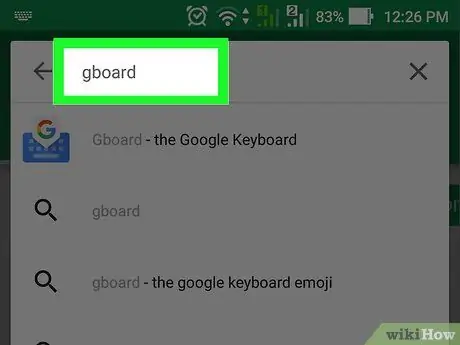
Step 3. Type in the google keyboard keywords

Step 4. Select the "Gboard" app from the results list that appeared

Step 5. Press the Install button
If the Google keyboard is not compatible with the version of Android installed on your device, try using another keyboard.
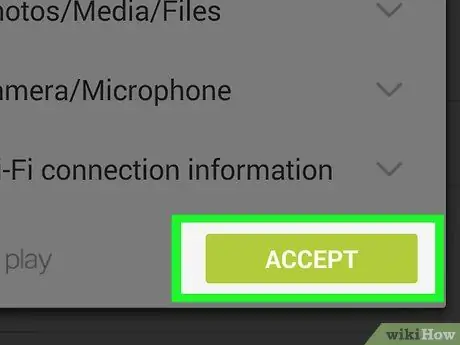
Step 6. Press the Accept button to start the download
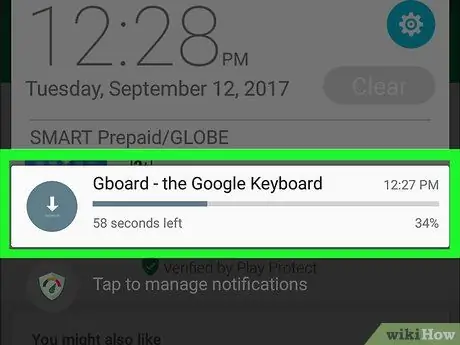
Step 7. Wait for the "Gboard" keyboard installation procedure to complete
You can follow the progress of the installation process directly from the device notification bar.
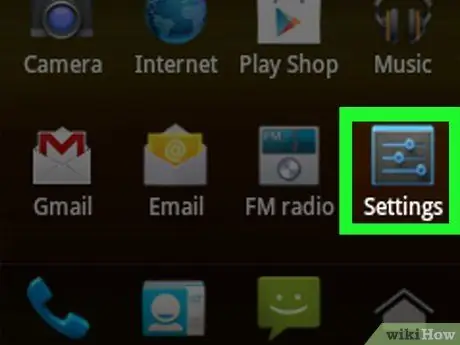
Step 8. Launch the Settings app on your phone or tablet
Its icon is located within the "Applications" screen and is characterized by a gear or a series of cursors.
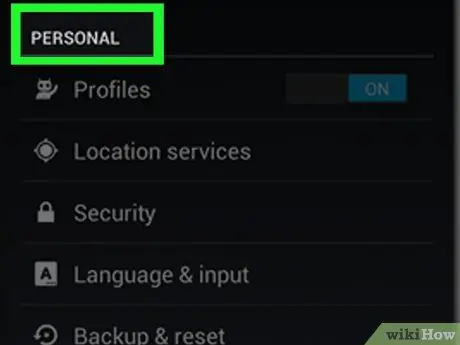
Step 9. Scroll through the list to find the Personal section
Using some devices you may need to select the "Personal" category.
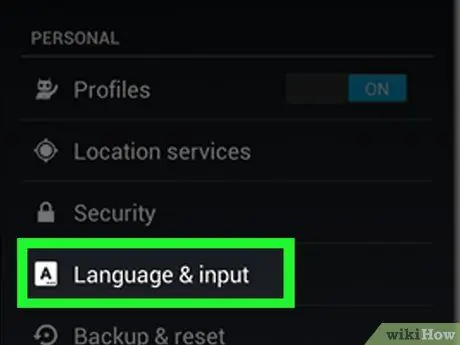
Step 10. Tap Language and input
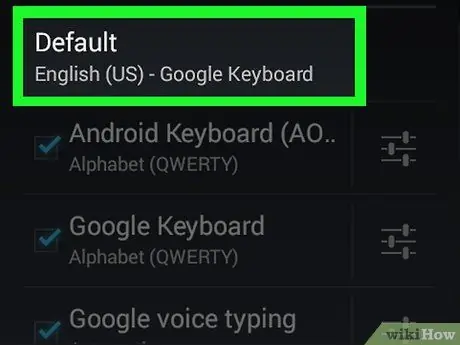
Step 11. Select the Default option located within the Keyboard and input methods section
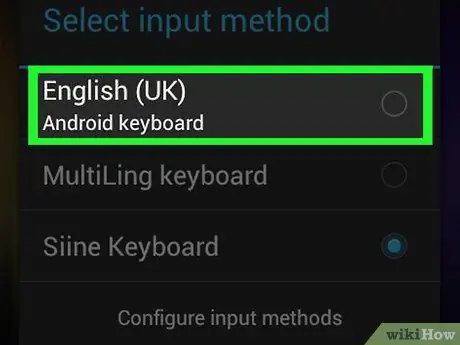
Step 12. Choose the Google keyboard entry
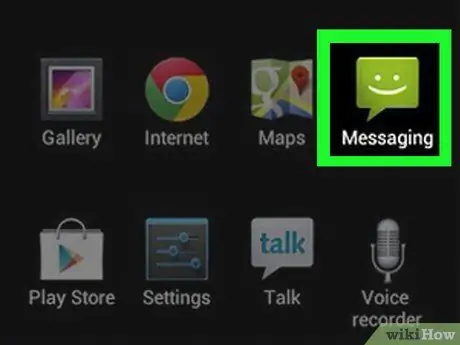
Step 13. Launch a keyboard application
Now that you have enabled the use of the "Gboard" keyboard, you can type emojis into your messages.
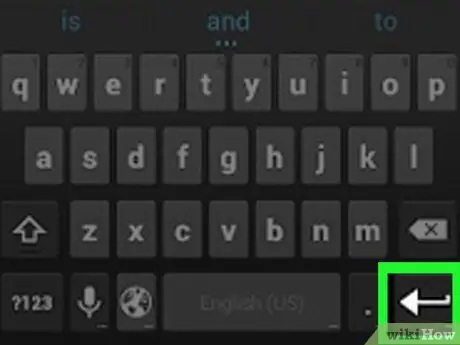
Step 14. Press and hold the ↵ (Enter) key
You will see a context menu appear exactly above the pressed point. One of the options available in this menu is characterized by the "☺" icon.
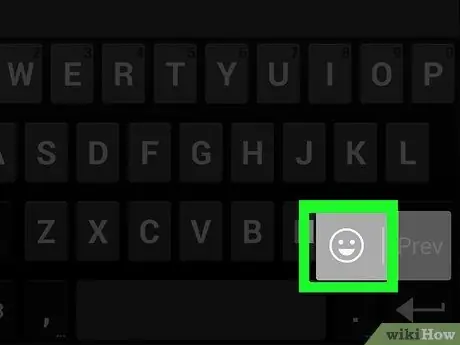
Step 15. Move your finger to the ☺ (Smile) icon then lift it off the screen
The complete list of all supported emojis will be displayed.
If the smiley icon is not present, it simply means that your device does not support emojis. In this case you need to install a different type of keyboard
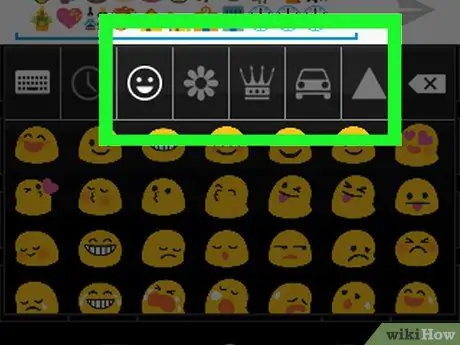
Step 16. Choose an emoji category from those proposed at the top of the keyboard
This will display all the characters included in the selected category.
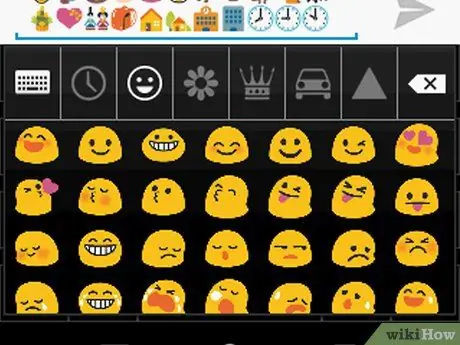
Step 17. Swipe the keyboard left or right to view all available characters
Each category of emoji is divided into several pages which contain all the symbols it contains.
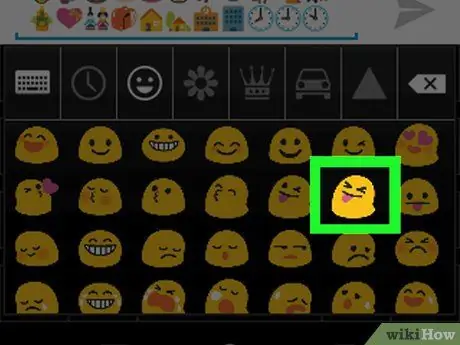
Step 18. Tap the character you want to insert in the message you are composing
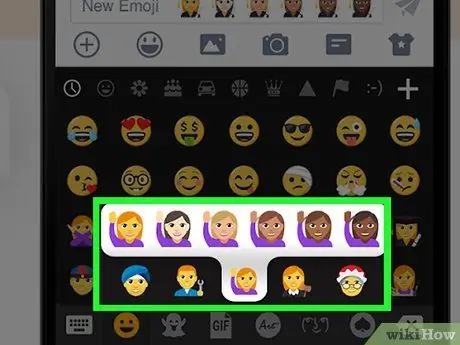
Step 19. To change the skin color of some special emojis, press and hold the relevant icon (only for Android 7.0 and later)
If you are using Android 7.0 (Nougat) or later, you can press and hold the icon of any emoji depicting human beings to change their skin color. This feature is not supported by previous Android versions.
Part 3 of 4: Using the iWnn IME Keyboard (Android 4.3)
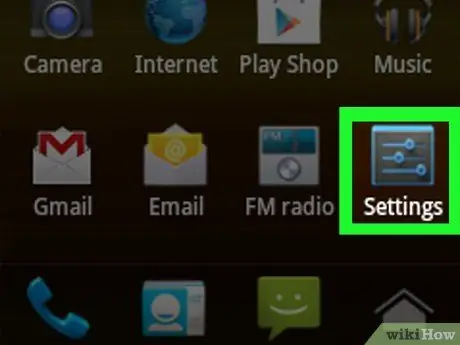
Step 1. Launch the Device Settings application
If you are using the Android 4.3 operating system, you can enable the use of black and white emojis.
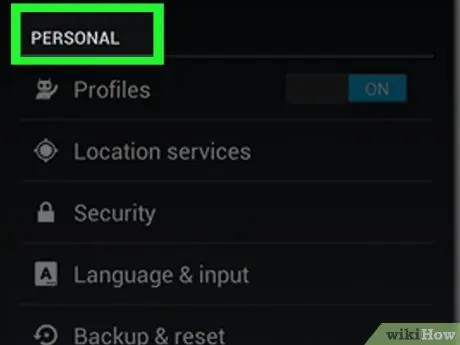
Step 2. Scroll through the list to find the Personal section
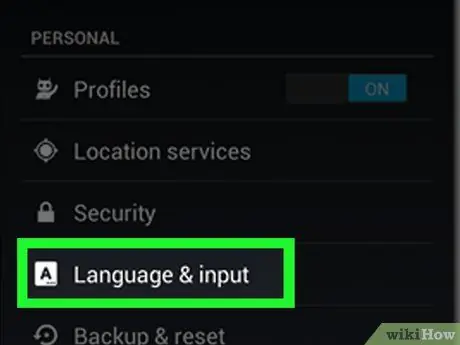
Step 3. Tap Language and input
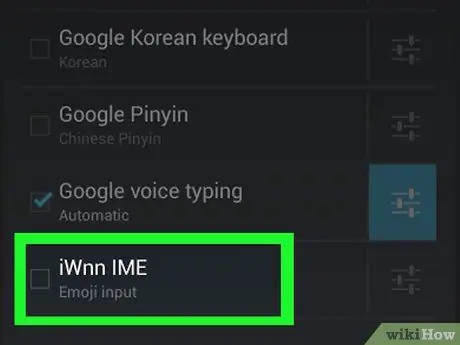
Step 4. Select the iWnn IME check button
This will enable the use of the indicated keyboard, which allows the insertion of emoji in black and white.
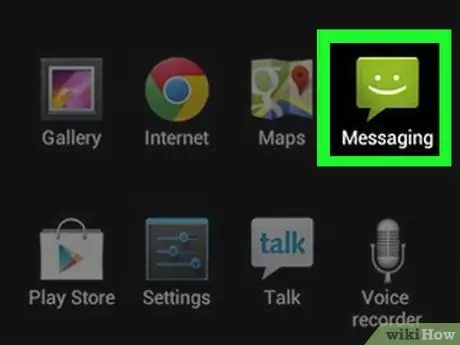
Step 5. Launch a keyboard application
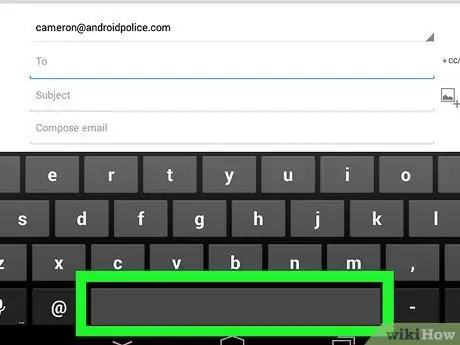
Step 6. Press and hold the Spacebar on your keyboard
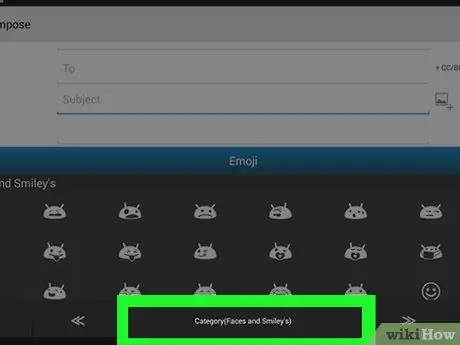
Step 7. Tap the Category button to change the category of emojis available
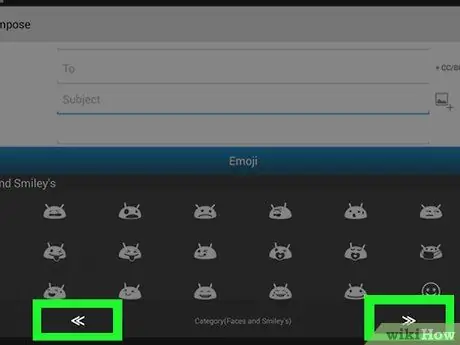
Step 8. Use the << and >> buttons to scroll through the pages that make up each category.
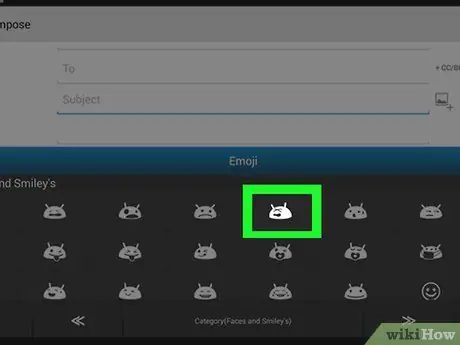
Step 9. Select the emoji you want to insert in the text you are writing
Part 4 of 4: Using Samsung Galaxy Devices (S4 and Later Models)
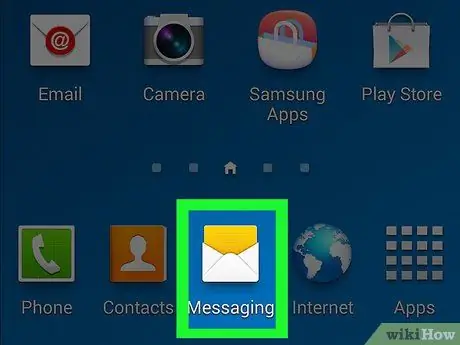
Step 1. Launch an application that uses the virtual keyboard of the device
If you're using a Samsung Galaxy S4, Note 3 or later, the default keyboard has emoji support.
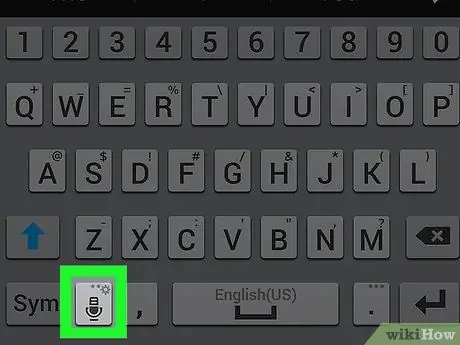
Step 2. Press and hold the Gear or Microphone key
It is located to the left of the Spacebar. On the Samsung Galaxy S4 and S5 this button is in the shape of a gear. On the Samsung Galaxy S6, on the other hand, it is shaped like a microphone.
Samsung Galaxy S7 users can simply press the "☺" (Smile) key on the keyboard to view the emoji section
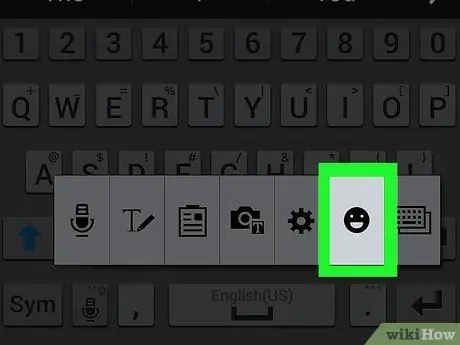
Step 3. Press the ☺ button inside the menu that appears
This will take the keyboard to emoji input mode.
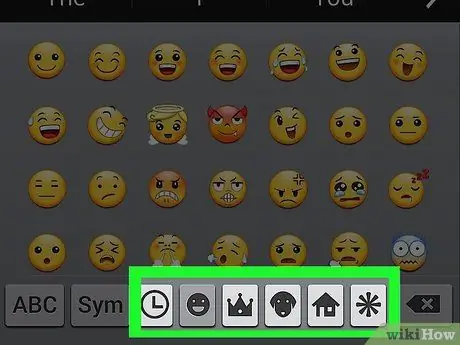
Step 4. At the bottom of the keyboard are the categories into which the emojis are divided
You then have the option to view the different groups of characters available to you.
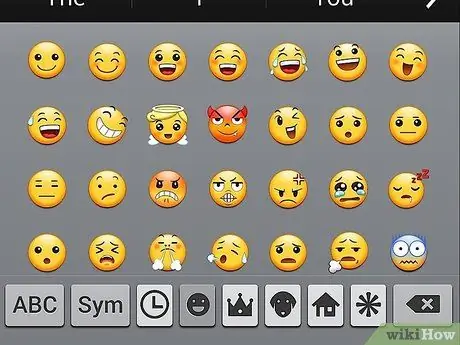
Step 5. Swipe your finger across the keyboard, left or right, to switch between pages in each category
Most emoji categories consist of multiple pages, which can be browsed very easily.
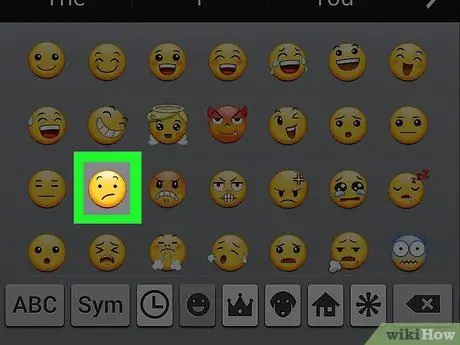
Step 6. Tap the character you want to insert in the message you are composing
Your chosen emoji will appear directly within the text you are typing.
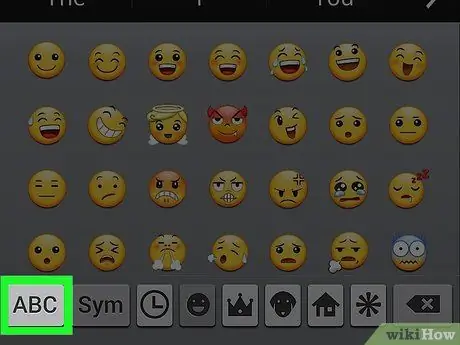
Step 7. To return to normal keyboard input mode, press the ABC key
This will close the emoji keyboard, while the normal keyboard will reappear.
Advice
- Since emoji support is affected by your operating system, the recipient of your messages may not be able to see them. For example, sending a character included in the latest revision of the Unicode system to an older device will not be able to display it correctly - it will simply show a blank square.
- Many of the messaging apps available for download come with a custom and exclusive set of emojis, which are not supported by the other apps. Facebook Messenger, WhatsApp, Instagram, Hangouts, Snapchat and many other programs provide the user with their own set of emojis, which is not normally supported by the device without the use of such applications.
- The Android operating system only adds emoji support from version 4.1 (Jelly Bean) onwards. While multicolor font support has been implemented from version 4.4 (KitKat) onwards. All previous versions of Android do not support emoji display.
- The way emojis and special characters supported by the Android operating system are displayed depends solely on the version you are using. Emojis are part of a character set that is handled directly at the operating system level, so the operating system must provide full support for them to be displayed correctly.
- To enable more and more emojis, periodically check for new updates for your Android device's operating system. See this article for more details on this.






